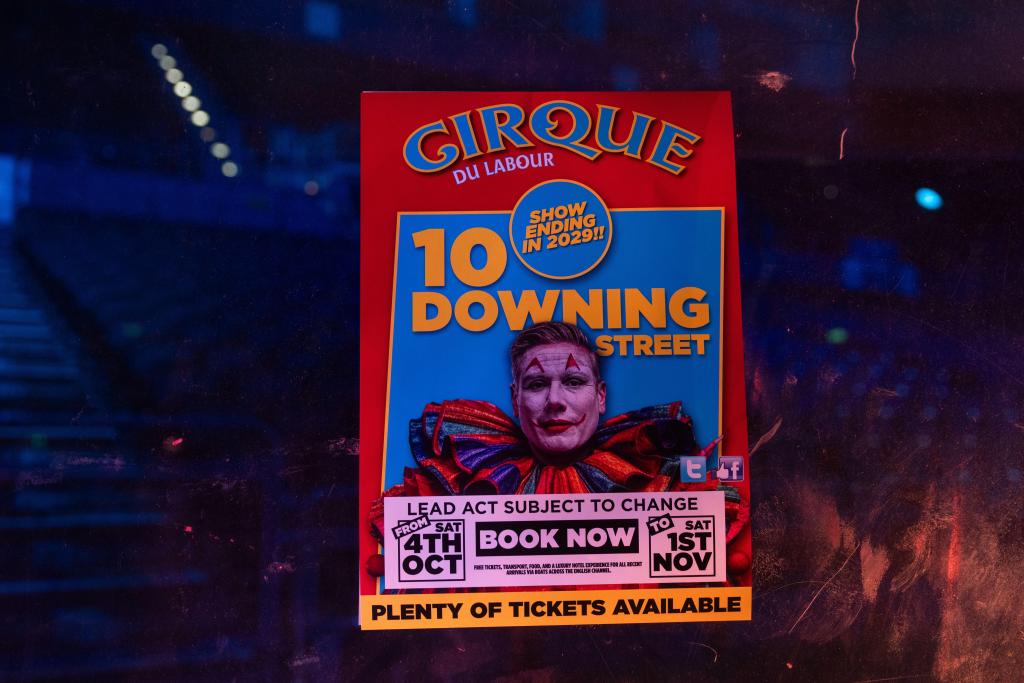Billy Connolly once declared that Scotland had only two seasons: June and winter. Perversely, though, just as the northern swallows are setting their alarm clocks and checking departure times for Cape Town and Johannesburg, it has become the Oakley tradition to head for the Isle of Mull. In recent years the accompanying essentials, Mrs Oakley, a case of good wine, long wellies and a surf-addicted flat-coat retriever, have been supplemented by author Felix Francis sending me in late August his latest forthcoming ‘Dick Francis novel’.
When Motivator won in 2005 he had more owners than any Derby winner in history – 230 of them
Racing’s continuance owes much to partnerships and syndicates. They have spread the joyous experience of racehorse ownership to many who, denied the background of a family hedge fund or a hefty legacy, could never before have contemplated funding a bouncing Richard Hannon two-year-old or a craftily campaigned Fergal O’Brien jumper. Researching that benefit I had no sooner ascertained from the British Horseracing Authority (BHA) that spread among Britain’s 14,000 registered owners there are no fewer than 890 syndicates than there plopped on to my doorstep the latest Francis thriller, Syndicate, about the colourful travails of a racehorse syndicate manager.
Felix acknowledges that his role model for the fictional Chester Newton (Newton’s amorous exploits apart, one imagines) is Harry Herbert, chairman and managing director of the Highclere syndicate whose 500 or so members pay between £5,000 and £40,000 a share for hopefully top-class horses like this season’s phenomenal sprinter Believing. Harry also runs the Royal Ascot Racing Club, which meant that when Motivator won in 2005 he had more owners than any Derby winner in history – 230 of them. The Middleham Park syndicates that have been going since 1995 have accumulated more than 1,500 winners, while at the other end of the scale are microshare schemes which you can buy into for £30 or £40.
What I hadn’t realised until talking to the chairman of the Racing Syndicates Association, Dan Abraham (whose own Foxtrot Racing typically has some 30 horses spread among 350 members handled by six trainers), is that syndicates are not just attracting new people to dabble in racing but are stopping those at the top from falling off the ladder as costs rise and prize money fails to keep up. ‘They realise that instead of having 100 per cent of one horse they can have 10 per cent of ten horses while getting all the benefits like not having to worry about VAT registration and the other paperwork.’
Basically there are two models. In a syndicate the members own or lease an interest in a racehorse; in a racing club the members have no ownership rights but acquire certain benefits such as the sharing of prize money. Nobody would wish to turn the clock back, although some trainers have been forced to develop social skills they hadn’t seen as part of the job when they started, as larger groups of owners come to visit. Most of them now have syndicates of their own, handy if you haven’t been able to sell a horse. But racing’s association with gambling has always attracted a few dodgepots and snake oil salesmen on the fringes and back in June the BHA quietly announced that for the protection of syndicate members anyone setting one up from January 2025 will have to have a licence. Existing syndicators or racing club managers will require one by January 2026.
Currently the BHA simply doesn’t know which syndicate owners are in groups of four mates from the local pub or 100-strong commercial organisations. The new certification will gradually build the picture. Smaller, nigglier problems are, however, emerging. Some racecourses are generous with badges giving entry to syndicate owners and free lunches in the Owners And Trainers bars; others are not. ARC generally offers eight free-entry owner’s badges and a meal or 20 badges with no meal. Tricky, says Dan Abraham, if only eight of the 20 are then allowed entry to the paddock. Jockey Club courses, he says, are more flexible according to the number of runners. Nevertheless, the Racing Post recently aired the grievance of one sole owner who complained that through syndicates eight or more people were being given the same benefit as him. Maybe tiered benefits – a better meal or a better bottle for sole owners – could provide some kind of answer but as Abraham says, ‘Some people in syndicates are spending a huge amount of money spread over a number of horses.’ On the other hand, he concedes, ‘You can’t have every syndicate member filling up every Owners and Trainers bar.’
And Felix’s latest Dick Francis novel? There is less morning horse sweat and hooves clicketing over stableyard cobbles than usual but Syndicate is as pacy and well researched as ever. Typically, he points out of horses leased to syndicates: ‘Almost all of those were female horses owned by breeders who effectively rented out their horse to a syndicate while they raced so having others pay the training fees.’







Comments